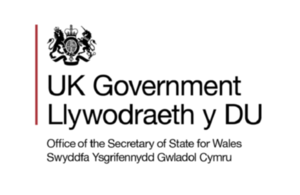Charities in Wales benefit from Tampon Tax Fund
Four charities in Wales are set to receive a cut of £600,000 from the UK Government’s Tampon Tax Fund, Minister for Civil Society announces today.

The Tampon Tax Fund is designed to benefit charities that support women and girls, particularly those affected by violence and domestic abuse.
In 2016 / 17, the Tampon Tax Fund has awarded £15m across the UK.
The fund is equivalent to the amount HMRC estimate is raised from VAT on sanitary products. The fund was announced at Autumn Statement 2015.
The four Welsh projects to benefit from the fund are: Volunteering Matters (SAFE) in Gwent, North Wales Women’s Centre, Rape and Sexual Abuse North Wales and the National Youth Advocacy Service in Wales.
Lord Nick Bourne, Parliamentary under Secretary of State for Wales, said:
This year’s funding will benefit projects all over Wales and will help provide many women, girls and young children, some of them in vulnerable situations, with a better standard of living through education, support and self-help programmes.
This Government is a Government that works for everyone and this funding demonstrates its commitment to the union and supporting projects across the whole of the UK.
Rob Wilson, Minister of Civil Society said:
From Cornwall to Dundee, the Tampon Tax Fund continues to benefit organisations in every corner of the UK working to improve the lives of disadvantaged women and girls, including those who’ve been affected by violence.
This Fund is helping to improve lives, supporting our ambition to create a fairer, shared society for everyone. I’m glad that so many worthwhile organisations will benefit from this money.
An outline of the planned activity for each of the four Welsh charities is below:
-
Volunteering Matters (SAFE) The SAFE (‘Sexual Awareness for Everyone’) project – This will improve the personal safety and maintain good sexual health of 300 young women (aged 16-35) with learning difficulties, from deprived areas in Gwent, South Wales through workshops, one-to-one peer support and production and distribution of a SAFE card. Learning will be shared with the wider community by 50 of the young women, who will be trained as SAFE Champions and deliver peer support within local youth, educational and community services.
-
North Wales Women’s Centre – The project aims to improve the lives of 300 (minimum) disadvantaged women and girls targeting those with multiple and complex needs who are at risk of offending or reoffending. Existing issues for this group of women will be addressed whilst empowering them to be more resilient. This will be achieved by provision of community based support across North Wales where referred women will be assessed to identify their needs and a care plan will be developed with them. Learning will be shared by working with a wider group of community-based organisations to plan service provision for the future.
-
Rape and Sexual Abuse North Wales - The aim is to pilot and evaluate, through partnership and collaboration, a self-help programme developed for survivors of sexual violence suffering with Sexual Trauma Specific Post Traumatic Stress Disorder (STS-PTSD). The project is to be trialled in three groups of eight annually, then expanded to groups of 12 once the pilot is complete. Following the pilot, they plan to train facilitators across Wales and the UK, to offer practical help to thousands of female survivors.
-
National Youth Advocacy Service - The aim of this project is to improve the lives of young women and girls leaving the care system in Wales especially those who are pregnant, those at risk of teenage pregnancy, at risk of child sexual exploitation and care experienced parents. The project will be bespoke and tailored to the needs of the young person increasing their confidence and resilience and giving them information and support on sexual health, healthy relationships, gender equality and body image. In addition to establishing a number of support networks the project aims to identify what works best for women and girls in this disadvantage cohort and having learned these lessons will look to seek funding to roll this project out to other parts of the country.